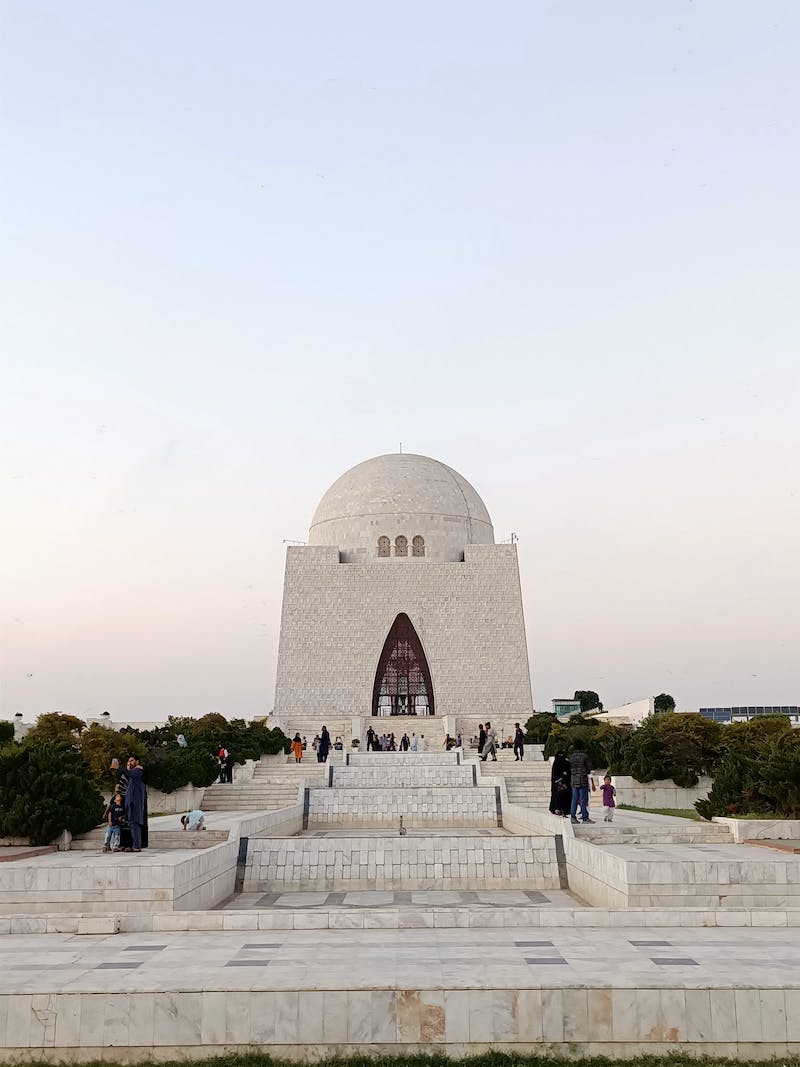25 December For Us and Through Times – Asrar Qureshi’s Blog Post #891
25 December For Us and Through Times – Asrar Qureshi’s Blog Post #891
Dear Colleagues! This is Asrar Qureshi’s Blog Post #891 for Pharma Veterans. Pharma Veterans aims to share knowledge and wisdom from Veterans for the benefit of Community at large. Pharma Veterans Blog is published by Asrar Qureshi on WordPress, the top blog site. Please email to asrar@asrarqureshi.com for publishing your contributions here.
25 December, being the birthdate of our great leader Quaid e Azam Muhammad Ali Jinnah holds special significance for us. We remember him with fondness, reverence, and respect.
Muhammad Ali Jinnah Sahib, popularly known as the "Quaid e Azam" (Great Leader), was a pivotal figure in the Indian independence movement and the founding father of Pakistan. His life, principles, and unwavering commitment to securing a separate homeland for Muslims reshaped the course of history in the Indian subcontinent.
Early Life and Legal Career
Born on December 25, 1876, in Karachi, Jinnah Sahib hailed from a prosperous merchant family. He received his early education in Karachi and later pursued law in London.
Jinnah Sahib excelled in his legal career and became a prominent barrister in Bombay (now Mumbai). He was known for his eloquence, integrity, and dedication to justice. Many anecdotes have been recorded and quoted about his sharp legal mind and how he won cases.
Political Career
Jinnah Sahib initially advocated for Hindu Muslim unity and cooperation within a united India. He was a member of the Indian National Congress (INC) and worked towards constitutional reforms that would protect the rights of Muslims.
However, disillusioned by the Congress's policies and the growing Hindu-Muslim tensions, he grew convinced that Muslims needed a separate homeland to safeguard their rights and interests.
He emerged as a key leader of the All-India Muslim League, advocating the two-nation theory, which posited that Hindus and Muslims were distinct nations with irreconcilable differences.
Leadership
Jinnah Sahib's leadership and persuasive oratory skills galvanized Muslims to support the demand for a separate Muslim homeland, eventually leading to the creation of Pakistan.
Jinnah Sahib's persistent efforts culminated in the Lahore Resolution of 1940, which formally demanded the creation of independent Muslim majority states in the subcontinent.
Through negotiations and political maneuvering, Jinnah Sahib successfully campaigned for the creation of Pakistan. On August 14, 1947, Pakistan emerged as an independent nation, with Jinnah Sahib becoming its first Governor General.
Persona and Legacy
Jinnah Sahib was known for his impeccable dress, dignified demeanor, and sharp intellect. He was a man of principles, fiercely dedicated to upholding the rights of minorities and ensuring a democratic, pluralistic Pakistan.
His vision for Pakistan emphasized unity, equality, and social justice, envisioning a state where citizens had equal rights regardless of their religion, caste, or creed.
Jinnah Sahib faced immense challenges in steering Pakistan through its infancy, including managing communal tensions, refugee crises, and the division of assets with India.
His untiring efforts laid the foundation for a new nation, advocating for constitutional rights, minority protection, and democratic governance.
Final Years
Jinnah Sahib's health deteriorated shortly after Pakistan's independence, and he passed away on September 11, 1948.
His legacy as the father of the nation remains unparalleled, as he set the course for Pakistan's identity as a homeland for Muslims and laid the groundwork for its democratic institutions.
Muhammad Ali Jinnah Sahib's leadership, determination, and vision continue to inspire generations, not only in Pakistan but across the world, as an icon of statesmanship, constitutionalism, and the struggle for self-determination. He remains a towering figure in the history of the Indian subcontinent, revered for his role in shaping the destinies of millions and the creation of Pakistan.
Historical Background of 25 December
Prior to its association with Christianity, December 25th was associated with various pagan festivals, such as the Roman celebration of Saturnalia, a festival dedicated to Saturn, the god of agriculture. Saturnalia involved feasting, gift giving, and revelry, coinciding with the winter solstice.
In many ancient cultures, including Celtic, Norse, and Persian traditions, the winter solstice around December 21st marked the shortest day and longest night of the year. Celebrations often revolved around light, rebirth, and the return of longer days.
Connection to Jesus Christ's Birth and Christmas
The specific date of December 25th for celebrating the birth of Jesus Christ was not mentioned in the Bible. It's believed that early Christian leaders chose this date to coincide with existing pagan festivals, possibly to ease the transition of pagan converts into Christianity by aligning their celebrations.
Over time, December 25th became widely accepted as the date for celebrating the birth of Jesus Christ, marking the Christian festival of Christmas. Christmas celebrations evolved with various customs, including church services, Nativity scenes, caroling, and exchanging gifts.
Christian Rituals on Christmas
Credit: Brigitte Tohm
Christians attend special church services on Christmas Eve or Christmas Day, often featuring carols, readings from the Bible about the birth of Jesus, and sermons. Many Christians set up Nativity scenes depicting the birth of Jesus, including figures of baby Jesus, Mary, Joseph, shepherds, angels, and animals. Exchanging gifts is a significant part of Christmas, symbolizing the gifts presented to Jesus. Families often gather for a festive meal, sharing traditional Christmas dishes.
Overall, December 25th holds a diverse and rich historical significance, intertwining pagan traditions, the winter solstice, and the Christian celebration of Jesus Christ's birth. While Christmas is primarily a Christian holiday, the date has been adopted, celebrated, and embraced in various ways by people of different cultures and faiths around the world.
Concluded.





Comments
Post a Comment